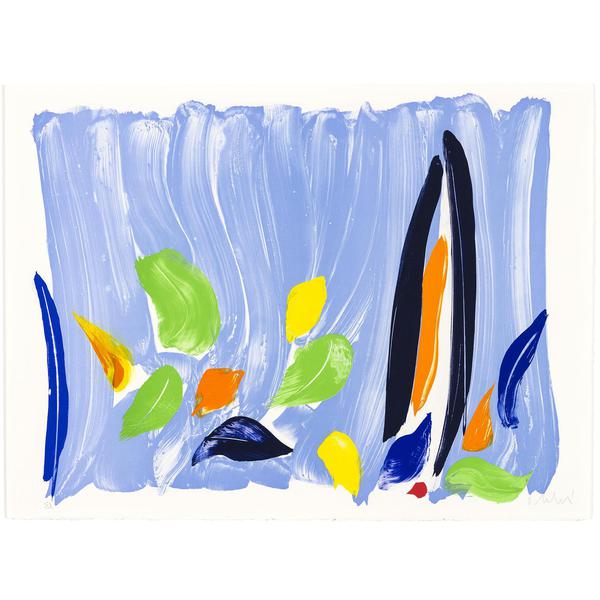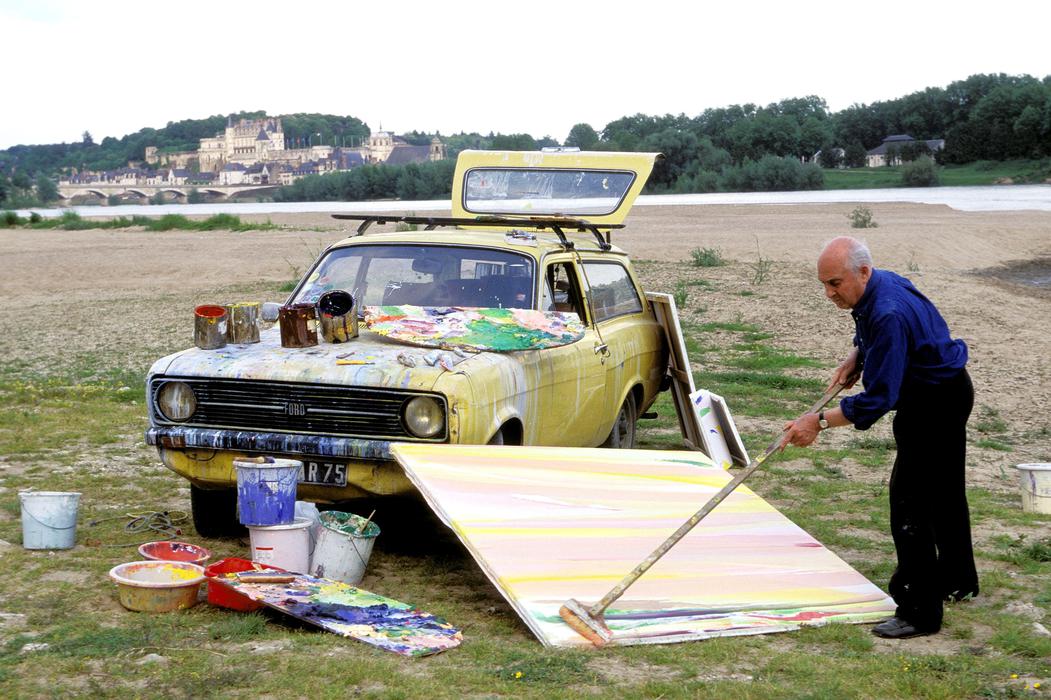
In anticipation of the exhibition Olivier Debré - From the Paintings of Touraine to the Landscapes of Quebec, get to know the artist through these biographical notes.
Olivier Debré was born in 1920 in Paris into a family of doctors and artists. He is the brother of former French Prime Minister Michel Debré.
He began painting and drawing as a child, and then turned to a career as an architect. In 1938, he graduated from the Ecole des Beaux-Arts de Paris in the architecture section. However, he decided to devote himself to painting. In 1939, he became a student of Le Corbusier and during the German occupation, he met Picasso in a gallery. This encounter anchored him definitively in painting. Thereafter, his painting, initially figurative and marked by impressionism, became abstract.
His pictorial expression will evolve towards more airy compositions with large colored surfaces, making Debré one of the representatives of gestural abstraction (or lyrical abstraction). He is certainly the most American of French painters. His style is in the spirit of the "color field". In spite of numerous trips around the world, he often returned to paint near the Loire River, in Vernou-sur-Brenne, near Tours.
The State gave him several commissions, for the International Exhibition in Montreal (1967), for the one in Osaka, for the French Embassy in Washington, for the stage curtain of the Comédie-Française (1987). He also created the curtain for the Hong Kong Opera (1989) and the Shanghai Opera (1998). In 1992, the City of Paris offered the City of Montreal the Obelisk in homage to Charles de Gaulle created by Debré.
In 1995, the Galerie Nationale du Jeu de Paume presented a retrospective of Olivier Debré's work, which was also shown in Europe and Latin America.
He died in Paris on June 2, 1999. He was then a Commander of the Arts and Letters, a Knight of the Legion of Honor and an Academician.
(Sources: Centre de création contemporaine Olivier Debré, Centre d'arts plastiques de Royan, Le Temps, Monde des arts)

Olivier Debré painting on the ground on the banks of the Loire, circa 1995. In the background, one can see the city of Amboise. R. Gaillarde/GAMMA RAPHO